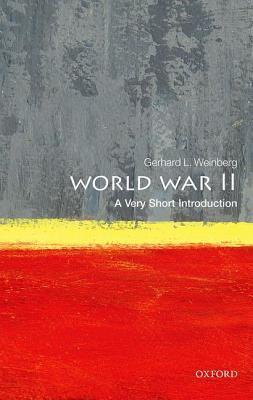
World War II: A Very Short Introduction
아직 평점이 없습니다
Action & Adventure
History
형식
페이퍼백
페이지
160
언어
영어
출판됨
Dec 1, 2014
출판사
Oxford University Press
ISBN-10
019968877X
ISBN-13
9780199688777
설명
Gerhard L. Weinberg explores the complex and harrowing realities of World War II, a conflict that reshaped the global landscape in unprecedented ways. As he delves into the motivations, strategies, and consequences of the war, readers gain insight into the events that led to one of the most devastating periods in human history. The author presents a nuanced analysis of how political decisions and social dynamics contributed to the escalation of hostilities across continents.
Weinberg's succinct narrative captures the vast scale of destruction, from the frontlines to the home fronts, emphasizing the human cost of war. He illuminates the experiences of soldiers and civilians alike, bringing personal stories to life amidst the broader context of military campaigns and geopolitical shifts. This work serves not only as a historical account but also as a reflection on the enduring impact of the war, prompting readers to contemplate its implications for contemporary society.
As he unfolds the intricacies of alliances, betrayals, and the fight for ideals, Weinberg invites a deeper understanding of World War II's legacies. The text is a compelling examination of how this era shaped modern civilization, leaving an indelible mark on generations that followed. Through his insightful commentary, readers are urged to confront the past while considering its relevance to current global dynamics.
Weinberg's succinct narrative captures the vast scale of destruction, from the frontlines to the home fronts, emphasizing the human cost of war. He illuminates the experiences of soldiers and civilians alike, bringing personal stories to life amidst the broader context of military campaigns and geopolitical shifts. This work serves not only as a historical account but also as a reflection on the enduring impact of the war, prompting readers to contemplate its implications for contemporary society.
As he unfolds the intricacies of alliances, betrayals, and the fight for ideals, Weinberg invites a deeper understanding of World War II's legacies. The text is a compelling examination of how this era shaped modern civilization, leaving an indelible mark on generations that followed. Through his insightful commentary, readers are urged to confront the past while considering its relevance to current global dynamics.